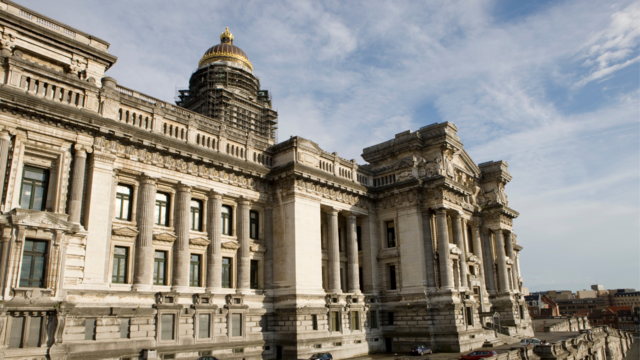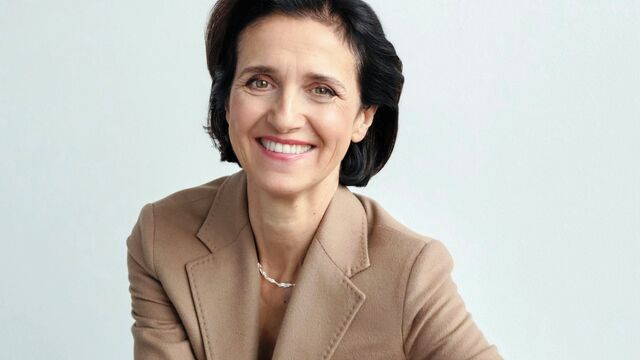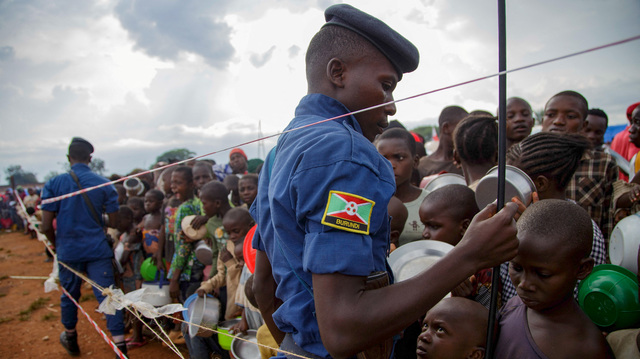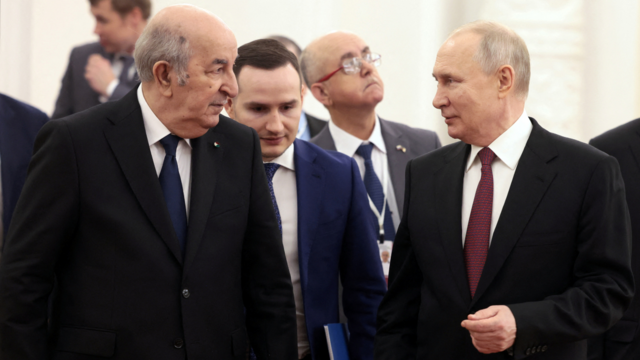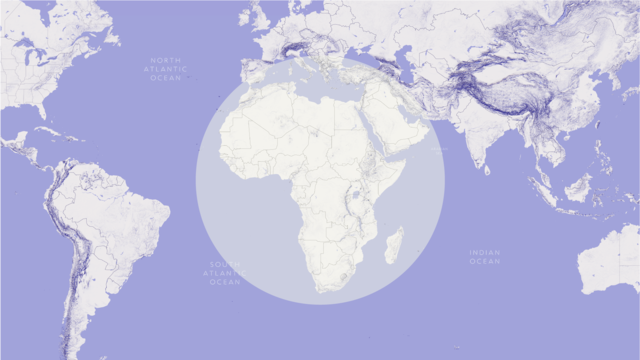Legitimacy of the Sahrawi Arab Democratic Republic and Moroccan Military Control over Western Sahara from the View of International Law
The conflict over Western Sahara has been, and still is a very complex issue that raises international attention. We are bringing you a reflection by Alžběta Machalová.
At the heart of the dispute lies the question of the legitimacy of the Sahrawi Arab Democratic Republic (SADR) in opposition to the Moroccan military control over the territory. There have been efforts to resolve the conflict led by the United Nations. The dispute raises a number of questions regarding the role of diplomatic efforts and international law as the region has a very special status. The United Nations refer to Western Sahara as a ‘non-self-governing territory’ – one of 17 in the World. The conflict is also contributing to regional instability and fuelling tension in northwest Africa, mainly between Morocco and Algeria as these countries have narrow ties to several militant groups that might pull the whole Sahel region into war.
HISTORICAL BACKGROUND
Western Sahara, an area of around 252,120 km squared lies on the north-west coast of Africa. Bordered by Algeria, Morocco and Mauritania, it was under Spanish Administration until 1976. Ever since then, there has been an ongoing conflict, at times more or less dormant. Following a document known as the Madrid Accords from 1975, a declaration made by Spain, Morocco and Mauritania claiming that the territory of Western Sahara shall be decolonised and temporarily administered by signing countries, but mainly that the views of Western Sahara’s population shall be respected, the territory was invaded and occupied by Moroccan and Mauritanian troops the very same year.
A conflict burst out when Morocco and Mauritania divided the territory among themselves. In the meantime, the pro-independence Polisario Front backed by Algeria, which supports the Front financially, politically, militarily and as of 2020 is home to approximately 170,000 Sahrawi refugees, proclaimed a sovereign state of the Sahrawi Arab Democratic Republic. After a series of military achievements by the Polisario Front, Mauritania backed off in 1979 leaving its part of the territory to Morocco.
In 1991 the Security Council of the United Nations decided in its Resolution 690 (1991) to establish the United Nations Mission for Referendum in Western Sahara (MINURSO). Both Morocco and the Polisario Front agreed on a ceasefire that has not been breached by either party until 2020. The conflict that has been dormant for nearly 30 years started again when Morocco launched a military operation on November 13th. The end of the ceasefire was a direct result of a road blockade by the Polisario Front that prevented hundreds of trucks from entering into Western Sahara through Mauritania. Up to this day, there were no casualties reported, however, the renewed conflict has increased regional tension as well as global tension regarding this conflict.
THE RIGHT TO SELF-DETERMINATION
The right to self-determination is a fundamental principle of international law. It is widely recognized in a number of international treaties such as the United Nations Charter or the International Covenant on Civil and Political Rights. The Charter itself determines “self-determination of peoples” as one of the leading purposes of the United Nations. This elementary right includes the right of the people to decide their own government and thus participate in the questions of independence, autonomy or legitimacy of such governments.
The Madrid Accords from 1975 are not generally acknowledged by the states of the United Nations since there is no provision that would transfer the sovereignty over the conflicted territory. According to international law, until there is another recognized administrative power over the territory, Spain remains the one in charge. That being the case, Western Sahara is often referred to as “Africa’s Last Colony” because even the Moroccan control is not widely recognised by the international community. The International Court of Justice provided an advisory opinion under Article 65, paragraph 1, of the Statute of the International Court of Justice in 1975 concluding that there cannot be established any Moroccan territorial control over Western Sahara.
The process of decolonisation shall be complete once there is a referendum reflecting the self-determination right. That is the main reason for the establishment of MINURSO, to resolve all matters necessary for the referendum in which it should be decided by the people of Western Sahara whether they want independence or integration of the territory with Morocco.
EXISTENCE OF SADR FROM THE VIEW OF THE INTERNATIONAL LAW
There are four constitutive elements according to the Montevideo Convention from 1933 that determine, whether a state exists or not, according to international law: defined territory, permanent population, governing power and the ability to enter into international relations. The territory in this case is rather undisputed in the meaning of location and size. The population as to its origin and composition is a bit more complex. People living in Western Sahara are referred to as Sahrawi whose etymological meaning is “inhabitant of the desert”. They are originally nomadic Berbers settled in north-west Africa. With the arrival of Islam, the composite heritage of the Sahrawi as known today is that of Berbers, Arabs and other Sahel clans. Nevertheless, they cannot be classified as a population yet, and thus do not meet the need for permanent population according to the Montevideo Convention.
The first two elements can be easily marked as met. However, the question of governing power represents the main issue why SADR is generally, with certain exceptions that will be discussed later, not recognised as an existing state by the international community. There exist two bodies that can be possibly perceived as the governing power of the Western Saharan territory. Nevertheless, neither of those bodies is eligible to act as a sovereign government of Western Sahara as there has not yet been a long-awaited referendum that is at the same time impossible to carry out because of these two bodies, thus creating a vicious circle. These are the already mentioned Moroccan government and the Polisario Front.
Both of these powers have found support within the international community and both of them control certain part of the territory of Western Sahara. The Polisario Front, a pro-independence movement, based in and supported by Algeria comprises ethnical Sahrawis. It is a government-in-exile, that does not hold regular elections. On the other hand, the Polisario Front holds regular congresses where its leaders are elected, hence, even though regular elections cannot take place, at least this form of “democratic” system exists. On the contrary, the Moroccan government perceives Western Sahara as a part of its own territory.
As Morocco is generally recognized by the international community, it is eligible to enter into relations with other countries and has established diplomatic relations with a number of them. Nevertheless, this ability only relates to the recognized territory of Morocco, not the territory of Western Sahara.
The ability to establish diplomatic relations with other countries goes hand in hand with the international recognition of the governing body. International recognition is not a constitutive element of a state, however, in this case, it plays a very important role as the international community is divided on this issue. As of 2021, the European Court of Justice recognised the Polisario Front as the legitimate representative of Western Sahara. Despite this view, many European countries such as Austria and Italy support the Moroccan plan for autonomy as they perceive it to be a basis for reasonable solution acceptable for all parties to the conflict, and therefore indirectly recognising Moroccan sovereignty over the territory. The Moroccan plan for autonomy for the Sahara region is a document submitted to the UN Secretary General in 2007. The Security Council in its Resolution 1754 (2007) welcomed the “serious and credible Moroccan efforts to move the process towards resolution” and expressed the need for “respect of the military agreements with MINURSO with regard to the ceasefire” and decided to remain seized of the matter.
Other major players on the international field that recognise Moroccan sovereignty over Western Sahara are the United States of America, Israel, Great Britain or Spain. Altogether there are 28 states that opened their consulates in the occupied territory of Western Sahara as an expression of support to Morocco in this conflict.
The Czech Republic has not been particularly vocal about its stance on the Western Sahara conflict and it generally harmonizes its position with the European Union. However, the official statement of the Czech Republic is that it respects the lead role of the United Nations and thus the MINURSO mission, even though it does not support it materially or in terms of personnel. Furthermore, the Czech Republic has never officially recognised the SADR nor has it established diplomatic relations with it.
MEMBERSHIP IN THE AFRICAN UNION
Even though there is no consensus regarding the existence of the SADR as a country governed by the Polisario Front, SADR has the ability to establish diplomatic relations and enter into international treaties in the context of the African continent. It is one of the 55 members of the African Union (AU) with its own permanent representative at the institution. Since its accession to the AU (then known as the Organisation of African Unity) it has established functional relations with many other member states. Some member states have recognised the SADR as an existing state since February 27, 1976, with its own government, President Brahim Ghali (as of 2024) and even its own currency, the Saharawi pesetas.
By recognising the Polisario Front as an official government of the SADR and thus allowing it to establish diplomatic relations, the other two fundamental elements that determine the existence of a state – governing power and the ability to enter into international relations – are fulfilled. And the SADR has indeed bound itself and ratified many international treaties over the years. One such example is the ratification of the Protocol on Women’s rights. The SADR has become the 43rd member of the AU to ratify this treaty in 2022 proving that it can bound itself not only by general international treaties, but human rights treaties as well.
On the other hand, there has been a certain diplomatic backlash regarding the SADR’s membership in the AU. As the SADR is recognised as a state by less than half of the AU member states, a diplomatic crisis occurred when Morocco re-joined the AU in 2017. Since many states side with Morocco in the conflict over Western Sahara, other conundrums of the SADR’s membership emerge. With the European Union being the largest funder of the AU, a question of whether the SADR can participate at the Africa-EU summits has been posed. The European Union, not having a unanimous opinion, has diplomatically surpassed this question identifying it as an internal question of the AU. It remains a fact that many member states of the EU and the AU perceive the Polisario Front as the representative power of Sahrawis living in exile, mainly in Algerian refugee camps, thus not being the governing power in Western Sahara.
MINURSO AND FURTHER IMPLICATIONS OF THE CONFLICT FOR INTERNATIONAL RELATIONS
MINURSO’s mandate is being continuously extended by the UN. Several states have however expressed their concerns that the UN peacekeeping missions should be cost-effective and result-based and since MINURSO does not correspond to these concepts, there is no further need for it. The main advocate of this narrative is the United States. According to the administration of former President Trump, the mission has failed to meet the purpose for which it was created and sides with the 2007 Moroccan autonomy plan for Western Sahara. The Biden administration currently plays a somewhat more assertive role than the previous one as it tries to reopen the failed UN negotiations. In 2023, US officials have engaged with all the parties to the conflict in an attempt to contain regional tensions and renew the UN framework aiming for a referendum.
The opposite view of the US is presented by France. It welcomes the adoption of the resolution that renews the MINURSO’s mandate. Representative of the permanent mission to the UN has expressed an official stance of France that commends MINURSO’s work which plays a key role in stabilizing the region and thus creating the necessary conditions to restore the political process of negotiation.
Furthermore, there are legitimate concerns about the state of human rights in the region. The Human Rights Watch has been monitoring the territory concluding that the human rights standard is not fulfilled. As Morocco controls a great part of the territory and rejects any demands for the referendum, people are deprived of the right to self-determination that would include an option of independence from Morocco. The Moroccan authorities also prohibit any Sahrawi self-determination gatherings and persecute Sahrawi independence activists, thus violating the right to assemble and freedom of expression.
Conclusion
The question of the governing power in Western Sahara, whether it is the Sahrawi
Arab Democratic Republic or Morocco, remains a formidable challenge in the field of international law. Even though the international community struggles to solve the ongoing conflict, the main actors do not appear to be anywhere closer to the solution than they were 30 years ago. The right to self-determination continues to shape the discourse of the conflict and could possibly be the main reason why the MINURSO’s mandate is being renewed.
As this conflict is somewhat specific compared to other armed conflicts that currently take place, it is hard to apply international legal framework patterns applicable to such armed conflicts. It is even harder as the conflict is covered by the question of the existence of the SADR. Morocco meets the four constitutive elements of a state and the Polisario Front could also possibly represent the governing power, yet still it is not enough to determine the status of Western Sahara in this case. Therefore, as the four basic elements are not enough, there is a need for more elements that would precisely determine the existence of a state. Such elements would have to be recognised by the international community and could be for example international recognition, existing legal system or permanent government institutions.
Furthermore, the impact of the dispute exceeded legal considerations a long time ago. Nowadays, it encompasses an economic, geopolitical and even humanitarian dimension as well. The question remains, whether the United Nations mission has the means to reach a solution that is acceptable to both parties of the conflict and is in compliance with international law, or whether the tension that can be observed in these times will escalate into a full armed conflict that would affect the whole region.
Alžběta Machalová is an intern at the Centre for International Law of the Institute of International Relations
